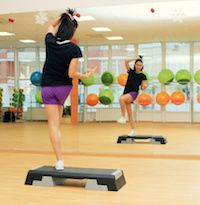Exercise Benefits Breast Cancer Survivors in Group Setting
Weightlifting and exercise are beneficial in an educational group for breast cancer survivors, researchers from the University of Pennsylvania determined in a recent study.

Physical therapy aids breast cancer survivors in strength training, according to research published in the Journal of the National Cancer Institute Monographs.
Researchers from the University of Pennsylvania evaluated 84 breast cancer survivors who were participating in an exercise and education group developed by Penn Medicine in order to determine its potential benefits for the participants. Measurements were taken of the patients’ limb volume, muscle strength, and body image at baseline, and 67 survivors completed the same measurements 12 months later. The study first aimed to prove that the program was effective for patients who transitioned from a research for a practice setting. The study secondly aimed to comprehend the implementation process and to identify its potential obstacles.
Previous research from the same team identified exercise as an opportunity for breast cancer survivors to develop stronger muscles and gain educational support as well.
In the current study, the program resulted in various benefits for breast cancer survivors. First, symptoms of lymphedema — where the upper body swells after breast cancer treatment caused by damage to or the removal of the body’s lymph nodes – were reduced. Fewer women showed lymphedema onset after completion of the program (8 percent), and fewer women demonstrated the need for therapist delivered treatment (19 percent). There were significant improvements in upper and lower body strength (13 and 9 percent, respectively) as well as improvements in body image (16 percent). The researchers noted no adverse effects resulting from the intervention.
The investigators secondly were able to successfully identify barriers in the intervention program. The researchers noted that the following obstacles hindered development within the program: intervention characteristics, payment, eligibility criteria, the referral process, the need for champions, and the need to adapt during implementation of the intervention.
“The results of this study are exciting because they demonstrate that an evidence based exercise and education program for breast cancer survivors can be translated to a new setting while still remaining effective and safe” first author Rinad Beidas, PhD, said in a press release. “Importantly, we were also able to identify the types of barriers that should be addressed when taking this program to scale, which provides important information translating research into practice, which historically has taken up to 17 years.”
The program was developed after previous research from the team observed that exercise and weightlifting can be extremely beneficial for breast cancer survivors. The program can be implemented at home or in a gym and is administered by physical therapists.